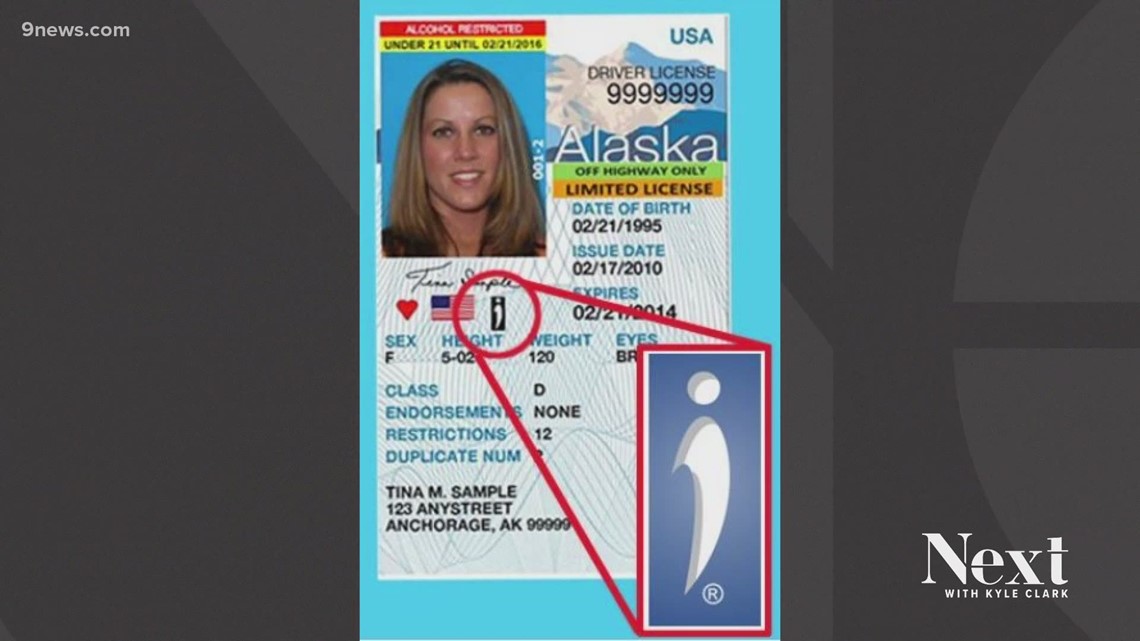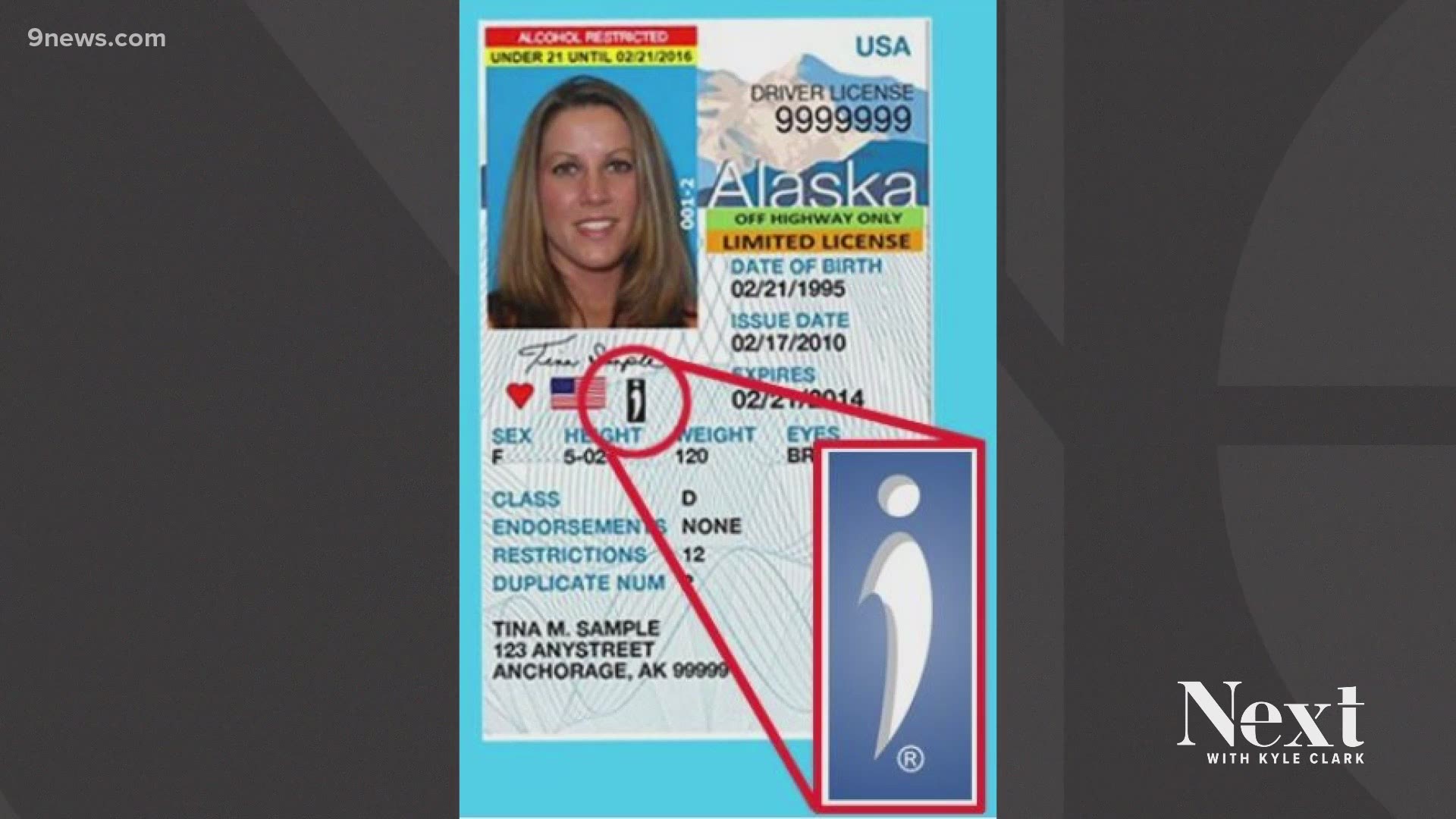DENVER — Colorado's newest attempt at police reform is so subtle, you'd have to know what you're looking for to see it.
For the second time in three years, lawmakers will consider adding a symbol to state-issued IDs that indicate the person has a disability. The bill, HB21-1014, would also allow for a computer notation on a person's license plate record, so that if law enforcement were to run the plate, they would know that the driver or passenger has a disability.
Not a physical disability.
"Ultimately, starting the conversation with our law enforcement that approaching somebody with an invisible disability has to be done from a different perspective," said State Rep. Dafna Michaelson Jenet, D-Commerce City.
Invisible disabilities can include autism, deafness, ADHD, something that could impair an interaction with law enforcement.
"This is a way to very clearly, very easily, very quickly communicate, 'there is something different about the way I operate, so you have to pause and let's figure out how we work together,'" said Michaelson Jenet.
Lawmakers in Alaska passed this type of bill in 2017. It creates a symbol, the letter "I", to be used on state-issued IDs to indicate someone has an invisible disability.
"If you are going to stop someone on the street and ask for their identification, if you have that symbol that you have voluntarily opted in, it is a starting point for a conversation about what is different about me," said Michaelson Jenet.
She first attempted this bill in 2019, but it didn't make it out of the first committee.
"This came from a student from Littleton High School, Rebecca Zickerman, when she was in high school, as a student with Cerebral Palsy. She was afraid that if she got pulled over, she might have jerky behaviors that could cause an officer to interact with her inappropriately," said Michaelson Jenet.


That version of the bill required that a person provide a form signed from a physician or psychiatrist or other medical professional to qualify for the disability symbol.
This year, that is not included in the bill.
"We worked very closely with the disability community, and the number one reason that we're not requiring medical personnel to sign off is because medical personnel don't always identity the invisible disability," said Michaelson Jenet.
Alaska's law also requires training for law enforcement, as well as an addition to the state's driver handbook to include "driver’s obligations when they are stopped by an officer."
Michaelson Jenet's bill does neither, but a companion bill handles the training aspect.
"It's purposeful that they're separate, but they also are driving down the highway in parallel lanes in trying to get to the same place," said State Rep. Meg Froelich, D-Englewood.
Froelich is the sponsor of HB21-1122, which creates a 10-person commission to recommend new training guidelines to be considered by the peace officer standards and training board (P.O.S.T. board). The recommendations for new training for law enforcement and first responders would be due by July 2022.
"The hope is, with training they go through a, sort of, checklist; is this person not complying with what I've asked them to do because of these reasons that are perfectly legitimate and not about defiance," said Froelich. "The idea of our bill is not to just simply say to the police academies, you need to do a better job on training people for interactions with folks with disabilities, it is to bring the disability community to the table."
The commission would include two people with disabilities and two parents of a child with a disability.
"In my case, it started off with parents of children with autism who are looking at their children getting bigger and bigger. My one friend has a 6'7" son, and she was understandably very nervous about the idea that he would, in the course of going about his business, interact with law enforcement, and that the situation would escalate in a way that nobody wanted," said Froelich.
Neither bill calls for a change to the Colorado Driver Handbook, to include any recommendations on how to interact with law enforcement during a traffic stop.
"I don't think there's a parent in America that hasn't had that conversation with their child about how to interact with police," said Froelich.
SUGGESTED VIDEOS: Full Episodes of Next with Kyle Clark

